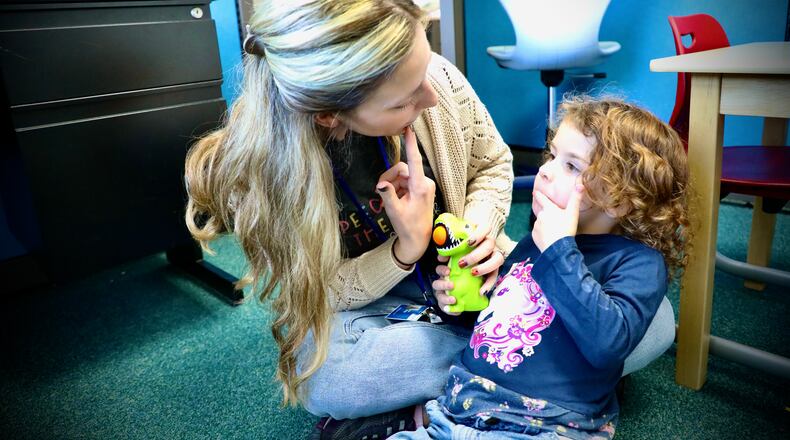“There has been a shortage of speech therapists across the state for awhile, however, the district did not feel the impact of this shortage until this school year,” said Steven Linson, Northeastern pupil services director.
The district originally partnered with the Clark County Educational Service Center (ESC) for virtual speech therapy services from the telehealth provider E-Therapy. However, the shortage is also impacting the ESC and E-Therapy, so they cannot provide Northeastern with those services.
E-Therapy provides online therapy services for Pre-K through 12th-grade students nationwide.
“If there are not enough therapists to help with speech therapy services, direct services are affected,” Linson said. “However, the district is required to provide these services to our students. To meet a student’s required service minutes, a district could have an extended school year and provide those services over the summer.”
The district plans to look for alternative options, such as other virtual speech therapy services through VocoVision that started on Monday. VocoVision, whose services will be funded from the district’s general fund, is a telepractice tech platform with a team capable in several disciplines such as speech-language pathologists(SLPs), occupational therapists, social workers and more.
The district will also hire three people to help cover the virtual services, including one who will help with speech therapy services and two who will provide direct services virtually. They will be in the speech room and designated area at Rolling Hills that was created specifically for these services.
“Despite this struggle, we want families to know that the district is committed to providing these necessary speech therapy services to our students. Therefore, we continue looking for alternative options to provide these services to our students as soon as possible,” Linson said.
The district employs two full-time, in-person speech therapists and one part-time (one day per week) in-person speech therapist through contracted services with the ESC. They provide in-person services to the preschools and other students based on their needs and staff availability.
“Unless the state steps in and changes the criteria for being a speech pathologist or how many can be accepted in a program per year, the shortage will likely continue,” Linson said.
Speech-language pathologists receive extensive training, must have at least a master’s degree, must pass an exam and put in clinical hours where they work under a certified pathologist.
The demand for speech-language pathologists is rising faster than many jobs, with a projected job growth of 21% through 2031 from last year’s employment of 159,800, according to the U.S. Bureau of Labor Statistics.
On average, there are about 14,000 openings for pathologists projected each year, which are expected as a result from the need to replace workers who transfer to different occupations or leave the labor force, the Bureau of Labor Statistics stated.
In Ohio, there are 6,450 employed, according to the U.S. Bureau of Labor Statistics.
In the Springfield City School District, officials were unable to fill four fill-time speech therapist position for this school year.
“To help cover our unfilled positions and planned leaves of absence, the district is in the process of bringing on an additional part-time SLP, and we are contracting with a company that will provide virtual services for an additional full-time caseload,” said Tamara Wallace, director of student services. “The district is also looking at adding an assistant to help with the logistics of virtual services.”
The district employs 11 full-time speech-language pathologists and four part-time therapists.
To help fill the need , the district has returned a handful of retired therapists and will use a virtual service to provide e-therapy to students.
The virtual services through eLuma will allow students to schedule appointments with e-therapists. There will be a part-time Student Services employee who will be on hand to help the students get online and complete any needed assessments. eLuma is an online therapy services solution that includes speech, mental health, psychology and occupational therapists.
“It’s very possible that the shortage of therapists will continue. Many superintendents have asked for help from legislators to address the issue, but this trend also reflects the nationwide educator shortage,” Wallace said.
Although some local schools have experienced the shortages, others have not, including Clark-Shawnee, Tecumseh, Graham, Mechanicsburg, and Triad.
Clark-Shawnee has two full-time speech-language pathologists and contracts with the ESC for any additional SLPs.
“At this time, we are able to meet the needs of our students, but we are aware of the challenges many districts are facing,” said Superintendent Brian Kuhn.
Tecumseh has a full-time speech and language pathologist and hasn’t seen a need to contract for more services.
“We were able to serve all of our students who qualify for special education with a speech and language diagnosis,” said Superintendent Paula Crew.
About the Author

